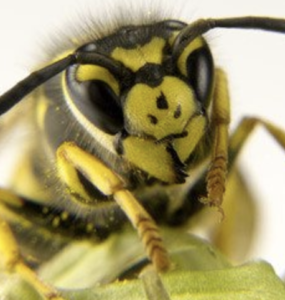
Stinging insects can be a major nuisance in late summer and early fall because their colonies are well established. Another reason is the workers are out foraging for food. They need to collect enough food to feed themselves and the queens for the winter. As a result of all of this increased activity, coming into contact with a stinging insect becomes much greater. The workers of the colony can also become very agitated and aggressive and can even sting without much cause or warning.
In late summer, the queens are also working overtime to produce a lot of eggs that will turn into new queens and males.
There are many species of stinging insects. Common stinging insects include yellow jackets, paper wasps, honeybees, carpenter bees and bumblebees. These stinging pests may nest in the ground or in trees. They may also get inside your home, and tend to nest in wall voids, attic spaces, and crawl spaces. Carpenter bees will create holes in untreated wood in and around your home and can lead to costly structural damages.
Some things you can do around your property to prevent stinging insects include:
- Making sure the grass on your property is dense and healthy because this will deter ground-nesting insects.
- Painting and staining untreated wood.
- Removing garbage frequently. Keeping trashcans covered, placing trash storage areas away from your home.
- Making sure cracks and crevices are sealed in the foundation and caulk gaps around windows and doors.
The best way to treat an existing problem with stinging insects, and prevent future problems, is to get help from a professional. A pest management professional will be able to safely eliminate stinging insects from your home and provide you with services to prevent future issues. Call Dixon Pest Services to keep stinging insect populations under control.
The Increased Threat of Stinging Insects in Late Summer in Thomasville, GA
Serving Georgia and Florida